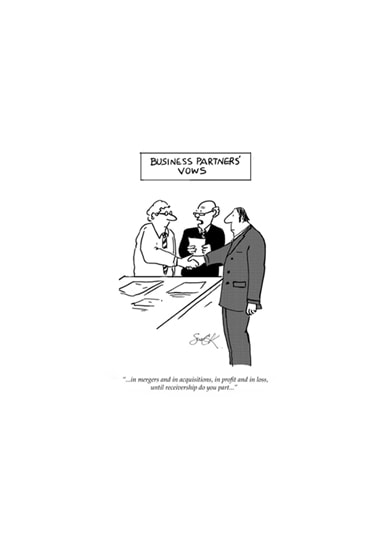
Are You Misrepresenting a Transaction to a Lender?
Acquisition financing can be difficult to secure, but if the deal, including the person attempting to get financing, cannot get approved legitimately, then it’s not meant to be. That is both a truth and a warning.
Over the years, and as recently as this week, I have had buyers and loan brokers attempt to convince me and/or a client to agree to terms of a transaction that will be hidden from a lender to make a deal work. I have also heard stories where deals were done under such conditions. The buyer wants to hide terms from a lender because the transaction will not be approved otherwise. Buyers that undergo such measures say things like, “Those terms are with me and the bank, but the seller and I can have a side deal where we …”. Unfortunately, it does not work that way. Lenders review all purchase agreements related to a transaction and have the parties sign agreements containing covenants, representations, and warranties attesting that they understand the terms.
This situation most commonly comes up when a buyer is trying to get SBA financing. The reason is that the SBA 7a loan terms are very good, but the underwriting requirements are strict. The deal has to fit in a specific box of requirements for the bank to get an SBA guarantee on the loan (I have discussed this previously), and probably 8% of transactions being contemplated actually qualify based on the buyer, the business, and terms of the transaction. What often happens is that the SBA lender, after reviewing the terms, may come back to the potential borrower and require that the seller note be placed in a standby position whereby the seller may not collect payments for a minimum of two years. In an effort to keep the seller from backing out of the deal, some buyers will tell the seller that they will have a side agreement to pay the seller during the standby period, as was likely agreed in their original offer. What the seller may not know is that (1) the standby period is only required if the buyer does not put down 20%/25% of the purchase price, and (2) by signing the second agreement and taking payments, the seller is participating in fraud.
The worst single case of SBA loan fraud that I have seen arose in Washington state during the economic boom of the mid-2000s.[1] In this case, the parties conspired to falsify the financials of the business and the buyer and hid the true terms of the deal from the lender. In a larger case in Virginia, a pair of loan brokers went as far as falsifying resumes and hiding their own future ownership interest in businesses being acquired.[2] While these two examples include multiple acts of fraud, it only takes one to be guilty.
3 Warning Signs of Seller Loan Fraud
To protect yourself from becoming an unknowing participant in loan fraud, watch for three warning signs:
1. When a buyer cannot come up with 20% of the purchase price.
Unqualified buyers are often overly eager and may be willing to do whatever it takes to buy a business that is beyond their financial capabilities. The problem comes to a head later when the buyer ends up defaulting on the loan, and the lender and SBA investigate the matter.
2. When a buyer or seller is found to have misrepresented information about themselves or their company.
The buyer may have inflated their personal financial statement or resume, or the seller may be significantly misrepresenting income or expenses on their tax returns. These red flags usually become apparent when parties do their due diligence. If they have lied once, then you should assume they will do it again.
3. When a party involved in the transaction suggests not disclosing details to a lender, particularly a business broker or loan broker.
Brokers know the loopholes and, if they are unethical, might attempt to massage the details so they can close the deal and get paid.
There are usually other signs that the transaction may not be on the “up-and-up” relating to the behavior of the parties involved. In life, either someone has integrity, or they do not. There is no middle ground, and you can land in hot water if you are not cautious about whom you are doing business with.
Experts in insurance distribution business valuation, sale, and acquisition
We deliver superior results through our industry expertise, transaction expertise, and professional network.
Contact us



